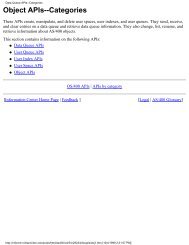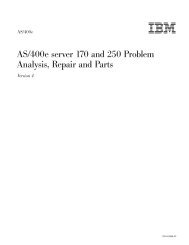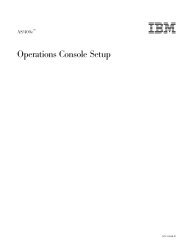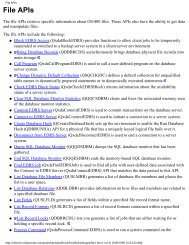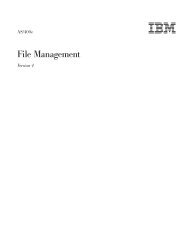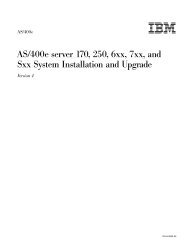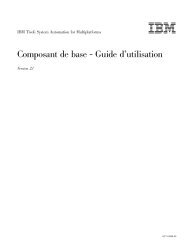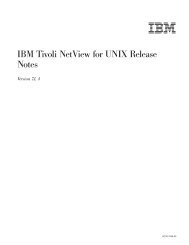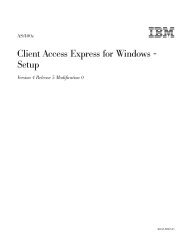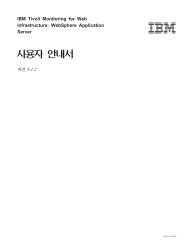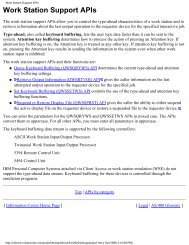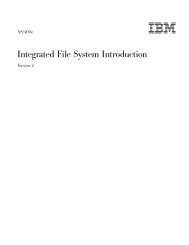Qshell Interpreter (qsh) - FTP Directory Listing - IBM
Qshell Interpreter (qsh) - FTP Directory Listing - IBM
Qshell Interpreter (qsh) - FTP Directory Listing - IBM
You also want an ePaper? Increase the reach of your titles
YUMPU automatically turns print PDFs into web optimized ePapers that Google loves.
Options<br />
Operands<br />
Exit Status<br />
- Invoke the command with exactly the environment specified by the<br />
arguments; the inherited environment will be ignored completely.<br />
-i Same as ’-’.<br />
name=value<br />
This modifies the execution environment and is placed into the inherited<br />
environment before the command is invoked.<br />
command<br />
The name of the command or utility to be invoked.<br />
argument<br />
A string to pass to the invoked command or utility.<br />
v 0 when successful<br />
v >0 when an error occurs<br />
[ Legal | AS/400 Glossary ]<br />
eval - Construct command by concatenating arguments<br />
Synopsis<br />
Description<br />
Options<br />
Operands<br />
Exit status<br />
eval[ argument ... ]<br />
You can use eval to construct a command by concatenating argument(s) together,<br />
each separated by a . <strong>qsh</strong> then reads and runs the constructed command.<br />
None.<br />
Related information<br />
34 <strong>Qshell</strong> <strong>Interpreter</strong> (<strong>qsh</strong>)<br />
Each argument is expanded twice, once to construct the command and once when<br />
the constructed command is run.<br />
Exit status of the constructed command.<br />
v “command - Run a simple command”<br />
v “dot (.) - Run commands in current environment”<br />
[ Legal | AS/400 Glossary ]



